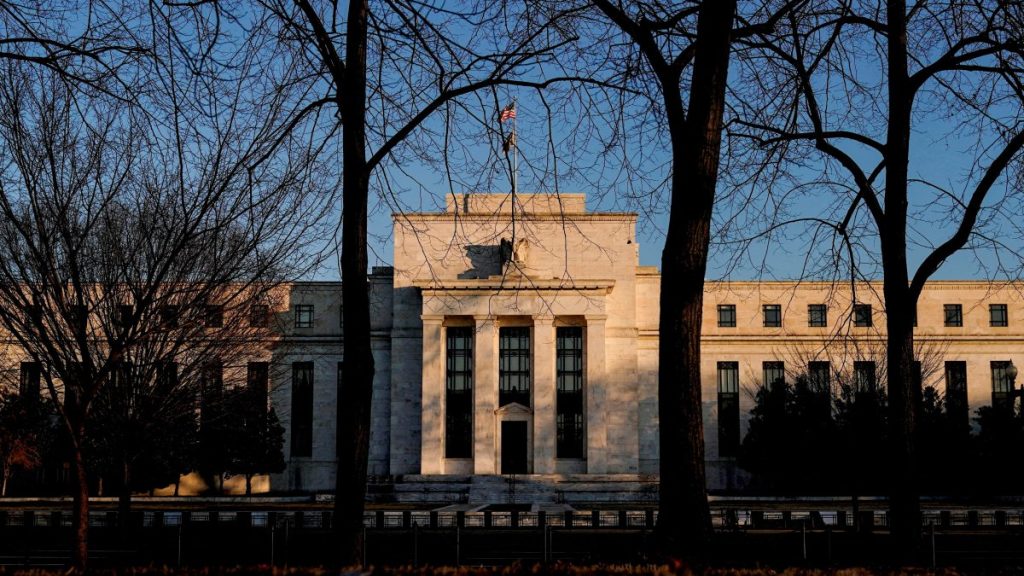The recent dispute between U.S. President Donald Trump and Federal Reserve (Fed) Chairman Jerome Powell over interest rate cuts has raised significant questions about the U.S. economy and the Fed’s independence. Donald Trump’s clashes with the Fed are not new, but in 2025, they’ve returned louder and more pointed than ever.
The U.S. Federal Reserve’s Monetary Policy Committee will announce the interest rate decision at 22.00 on May 7 after the 6-7 May meeting. Trump is demanding an immediate cut in interest rates. Current forecasts indicate that interest rates are not expected to be cut at this meeting. However, should clear and compelling data be presented, steps may be taken to cut rates as of June. Trump would be highly disappointed if there were no rate cut.
In the current climate of discord between Trump and Powell, the question arises as to whether this is detrimental to the Fed’s independence or if it clarifies its autonomy more clearly.
Silent battles of power
The role of the Federal Reserve chair is both technically demanding and politically sensitive. The question of whether to pursue a career in the field has remained constant. Who is responsible for the economy?
The Federal Reserve is the key driver of the American economy, but the White House occasionally attempts to influence its pace. History is replete with instances of subtle power struggles between central bank presidents and heads of state.
In the 1980s, Paul Volcker, the 12th chairman of the Fed, implemented a stringent interest rate policy to address high inflation. The Ronald Reagan administration was keen to promote growth, but Volcker adopted a more cautious approach. A recession was inevitable. Despite the mounting pressure, Volcker remained steadfast in his position.
In the 1990s, Bill Clinton pursued growth through low interest rates, while Alan Greenspan, the next chairman of the Fed, adopted a cautious approach. The relationship evolved, with an initial frosty atmosphere giving way to a more cordial one.
In the 2008 crisis, Ben Bernanke, the 14th chairman, faced a more challenging situation. He encountered divergent expectations from both George W. Bush and Barack Obama. He opted for a quantitative easing strategy. Despite mounting criticism, he remained steadfast in the face of the crisis.
Trump’s fight with the Fed reignited
Back in 2018–2020, then-President Trump publicly berated Fed Chair Jerome Powell over interest rate hikes that, in his view, undercut economic growth. Trump, ever the short-term growth advocate, saw rate increases as an obstacle to his economic agenda. Powell, by contrast, focused on long-term stability and the Fed’s independence. The tension peaked when Trump labeled Powell “the biggest threat” to the U.S. economy and flirted with the idea of firing him, only to back off amid fears of market chaos.
Fast-forward to Trump’s second term, and the rhetoric has sharpened. Within the first 100 days, Trump again called for rate cuts despite mixed economic signals. Economists warn that doing so, especially in the face of rising inflationary pressures and ongoing tariff wars, could backfire. Ironically, Trump’s policies have increased long-term interest rates, adding to market unease.
Boomerang effect
Trump claimed that his tariff policies would cause the U.S. economy to boom. However, according to official data released on April 30, the U.S. economy shrank by 0.3% in Q1, marking the first decline in three years.
On May 1, the Bank of Japan decided to maintain the status quo concerning interest rates and to lower its growth forecasts. This decision was made because Trump’s tariff and trade policies increased global economic uncertainty and fragility. Despite Mr Trump’s assumptions, the global economic slowdown will likely harm U.S. exporters.
In contrast, while the pressure created by imported goods sought by businesses to avoid high costs in the U.S. domestic market plays a significant role in this contraction, Trump stated that the issue does not stem from tariffs, that it will take some time, and that the American people should be patient.
Courage to act
The failure of the two most prominent names in economic management to reach a consensus indicates the market’s uncertainty and contradictions in policy priorities. Clearly, the lack of consensus between the Fed and the Presidency only exacerbates the prevailing uncertainty. In a period of high uncertainty, i.e., high risk, making accurate predictions based on calculations is crucial. Most investors prefer an independent Fed. This is partly because it can better manage inflation without being influenced by politics, but also because its decisions are more predictable. In today’s market, trust is the most valuable commodity.
Decision-making independence does not imply irrationality. Instead, it centralises responsibility for outcomes. In his book on the aftermath of the 2008 crisis, Bernanke states that ease of decision is “courage to act.”
What is next?
Powell’s term of office is due to expire next year. Rumors circulate that former Fed governor Kevin Warsh is Trump’s new Fed chair nominee. Although Warsh is regarded as one of the “hawkish” members of the Fed, his emphasis on the flexibility of financial markets and the need for policies to support growth could align him with Trump’s views.
It is true that Trump gave Warsh full consideration during the selection process for the 2017 Fed chair before opting for Jerome Powell. Nevertheless, Warsh’s positive approach to Trump’s tax cuts and deregulation moves created potential ground for political harmony between the two.
In light of the history above, it would not be unexpected if Warsh’s name were to be considered once more as a candidate for the role of central bank president, during Trump’s second term, if the bank is to be ‘more compliant and loyal’.
According to reliable sources, Warsh frequently emphasized to Trump the importance of Powell completing his term and highlighted the serious legal and economic risks of an early removal.
In summary, Mr Warsh demonstrated his commitment to the FED’s institutional culture to Mr Trump before his taking office.


